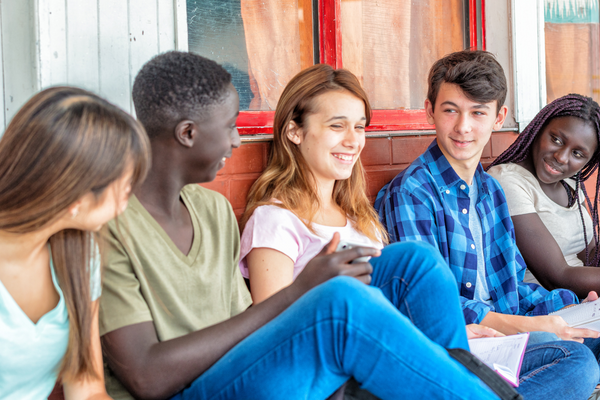Dr. Cheryl Vamos, colleagues study teen pregnancy prevention in marginalized youth
USF College of Public Health’s associate professor Dr. Cheryl Vamos, along with Dr. Jill McCracken, a gender and sexuality expert in USF’s College of Arts and Sciences, are co-principal investigators of the Choosing Myself grant exploring teen pregnancy prevention among justice-involved and marginalized youth.

The two-year, nearly $800,000 grant from the U.S. Department of Health and Human Services, will consist of three phases of programming and evaluation and ultimately reach 200 justice-involved youth (ages 13-18), both in/out of residential facilities across Florida and Georgia. The program and evaluation, Vamos said, will be participant-centered, with all activities being informed by the community. The project is being conducted in partnership with Allies for Healing, a nonprofit organization established to develop, deliver and evaluate sexual reproductive health education programming.
“As with many significant public health issues, including issues related to sexual and reproductive health, often the needs of those who may be at greatest risk or who may experience challenges accessing information and services are not taken into account,” Vamos said. “Justice-involved and other marginalized youth (e.g., LGBTQ+, Dis/ability and BIPOC individuals) are at a greater risk of sexual violence, sexually transmitted infections (STIs), and teen pregnancy than their peers. This program acknowledges systems of oppression (e.g., racism, misogyny, homophobia, transphobia, and ableism) and social determinants of health (e.g., housing, food) that influence a youth’s decision-making. These lived experiences and structural factors often place justice-involved youth at greater risk and are not usually considered in standard programming.”

The research will be conducted with an interdisciplinary group of researchers, a youth advisory board (to help improve the program’s content and delivery) and community partners.
“We hope that our study will provide evidence of the following,” Vamos said. “First, that a co-created, trauma-informed sexual and reproductive health program can be developed to be participant-centered, appropriate and reflective of justice-involved youths’ lived experiences.
Secondly, that the program is acceptable and feasible. And lastly, that any potential barriers and facilitators are identified by stakeholders (youth participants, program facilitators, community partners) so that these can be addressed in future iterations of the program.”
Vamos, who also directs the college’s Center of Excellence in Maternal and Child Health Education, Science and Practice, noted that preliminary impact data suggests promise of the program’s effectiveness. She hopes the Choosing Myself program will better inform teen pregnancy prevention curriculums in the future.
“Ultimately, we hope that this research will provide evidence of short- (e.g., knowledge, self-efficacy and behavioral skills) and intermediate- (decrease nonconsensual and physically/psychological violent sex, correct/consistent condom/contraceptive use, increase access to sexual healthcare) term outcomes. This contributes to the ultimate goal of reducing unintended pregnancy, STIs and sexual violence.”
Story by Donna Campisano, USF College of Public Health
